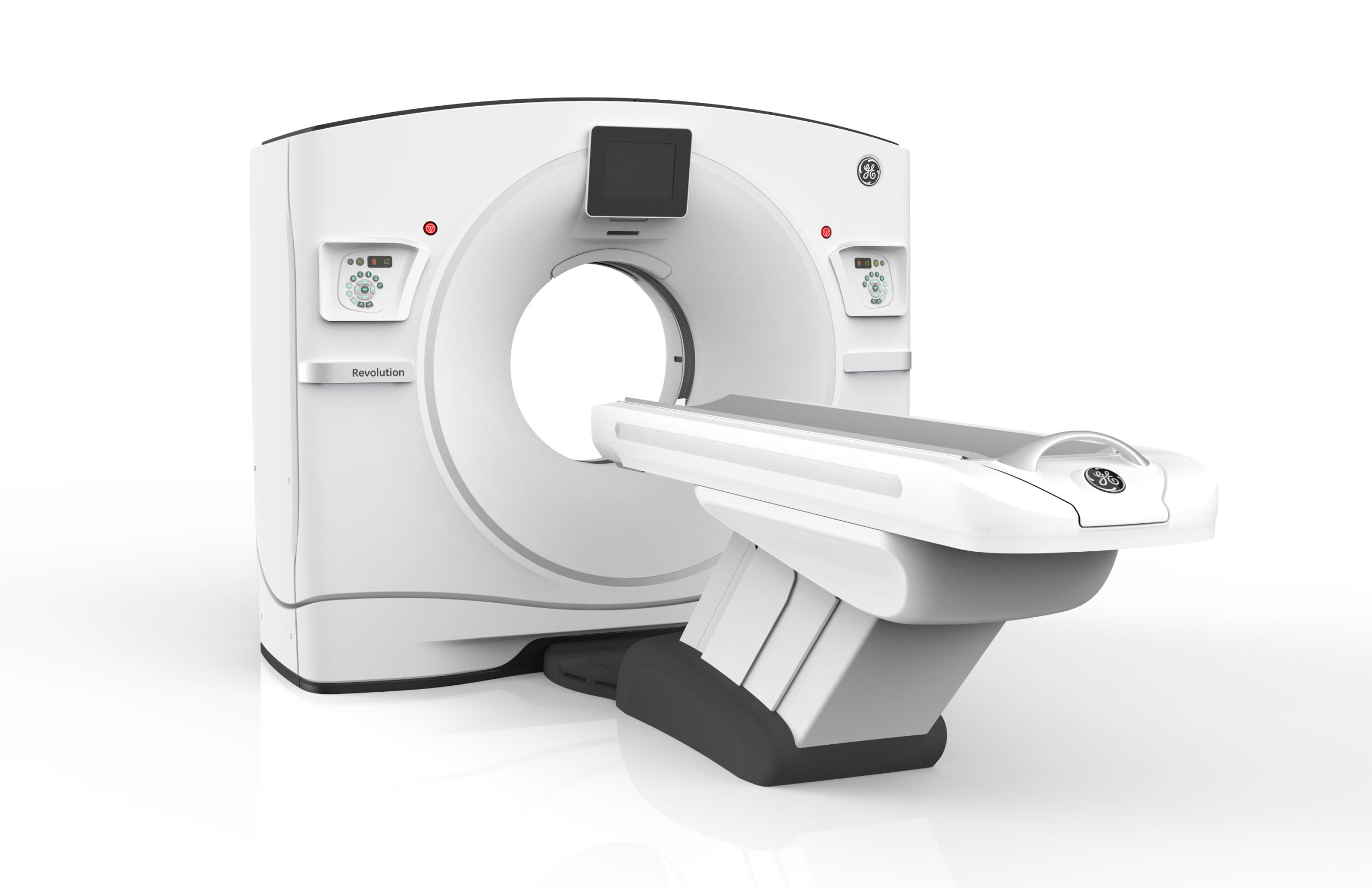GE Healthcare and NVIDIA use AI to boost health data processing

GE Healthcare and graphics firm NVIDIA are to combine sophisticated artificial intelligence with imaging devices, accelerating the speed at which healthcare data can be processed.
The companies have a 10-year partnership and announced details of next steps at a scientific meeting yesterday.
It includes the announcement of the new NVIDIA-powered Revolution Frontier CT scanner, advancements to the Vivid E95 4D Ultrasound and development of GE Healthcare’s Applied Intelligence analytics platform.
The new CT system is two times faster in imaging processing than its predecessor, due to its use of NVIDIA’s AI computing platform.
The Revolution Frontier (pictured) is FDA cleared and expected to deliver better clinical outcomes in liver lesion detection and kidney lesion characterisation because of its speed.
This could reduce the need for unnecessary follow-ups for patients with compromised renal function and reducing non-interpretable scans with Gemstone Spectral Imaging Metal Artefact Reduction (GSI MAR).
At the Radiological Society of North America, NVIDIA also said its graphics cards will accelerate reconstruction and visualisation of blood flow in GE’s Vivid E95 4d Ultrasound System.
And a new GE analytics platform will use NVIDIA graphics cards to accelerate the creation, deployment and consumption of deep learning algorithms to create faster and more efficient healthcare analytic applications.
NVIDIA estimates the average hospital generates 50 petabytes of data annually, through medical images, clinical charts and sensors, as well as operational and financial sources. Yet, less than 3% of that data is actionable, tagged or analysed.
GE Healthcare and NVIDIA aim to harness more of this data by combining powerful applications using best-in-class medical devices and the fast processing speeds of GPUs.
NVIDIA has already helped spread AI across fields including self-driving cars, robotics, and video analytics, and is working with GE Healthcare to spread its application in healthcare.
GPU-accelerated deep learning can be used to design more sophisticated neural networks for healthcare and medical applications—from real-time medical condition assessment to point-of-care interventions to predictive analytics for clinical decision-making.
For patients, the partnership aims to drive lower radiation doses, faster exam times and higher quality medical imaging.












